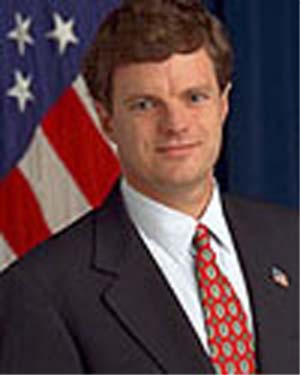
John Bridgeland says "Many Americans would be surprised to learn how hard it has been to increase the number of Peace Corps volunteers, which only number 7,500 today, despite more than 200,000 Americans who have expressed interest in the program since Sept. 11"
In tandem, volunteers can do more
By JOHN BRIDGELAND and MICHELLE NUNN
Published on: 07/01/04
Jeanette McClellan is an AmeriCorps member in Atlanta who has spent 10 months leading a team of 20 community volunteers tutoring children daily in an under-resourced public elementary school. It is work that demands diligence and patience, passion and leadership. It also produces tangible rewards, both for the students who are tutored and for the volunteers who teach.
While McClellan and thousands like her tenaciously serve in America's historically marginalized communities, partisans in Washington wage an ideological war. The world of national and volunteer service seems oddly divided into two camps, too often around party lines.
One camp is dedicated to enabling more Americans to serve for one or more years through programs such as the Peace Corps, AmeriCorps or Senior Corps, but often with little attention to those volunteers who serve locally without government support. The other camp supports traditional volunteers, but often opposes any federal investment in national service programs.
For the sake of strengthening our country, it is time for the two camps to join as one.
When President Bush issued his call for every American to give two years in service to community and country, he sought to create a "culture of service, citizenship and responsibility."
His USA Freedom Corps proposed and mostly obtained the largest public investment ever in national, homeland security and international service programs. As important, Freedom Corps sought institutional changes at every level to connect millions of additional Americans to meaningful opportunities to volunteer in local communities across the country.
Echoing down the ages from George Washington to the Rev. Martin Luther King Jr., the culture of service in America is quite strong. In the aftermath of Sept. 11, 2001, and in the face of a 30-year decline in volunteer service and civic engagement, 59 million Americans stepped forward to regularly volunteer through a school, place of worship or local nonprofit. One year later that high number, born from tragedy, rose even more, to 63 million.
What's disappointing is how difficult it has been to create these opportunities for so many Americans who simply want to serve their community and country. In the midst of this debate, we are losing the opportunity to engage millions of additional Americans in service. Many Americans would be surprised to learn how hard it has been to increase the number of Peace Corps volunteers, which only number 7,500 today, despite more than 200,000 Americans who have expressed interest in the program since Sept. 11.
Citizen Corps, an effort that has engaged hundreds of thousands of community volunteers to support homeland security, received federal support only after intense and repeated efforts. The vast majority of American citizens and leaders support these programs on the home front and in countries around the world, especially after the Sept. 11 attacks.
The AmeriCorps program, despite its widespread popularity in local communities, is the subject of a divisive debate in Washington every year. Even today there are efforts to dismantle or severely cripple AmeriCorps, despite tremendous support for programs like Habitat for Humanity, Teach for America and Hands On Atlanta, which are populated by AmeriCorps participants.
Opportunities exist to support volunteer service among Americans in community and faith-based organizations around the country that are not within reach of AmeriCorps. We call upon the Congress — those on both sides of this issue — to resolve the conflict over national service and invest in volunteering as well. There should be a significant federal investment in our volunteer centers and intermediaries, matched by local community resources, competitively administered and accountable for results, to increase the capacity for Americans to volunteer.
Service, through national or community programs, is what defines us as Americans. It also can be a powerful antidote to the sense of helplessness many Americans feel today. For the sake of building a culture of service and citizenship that fulfills our nation's promise, it is time for us to join together in a bold and united front of service.
John Bridgeland, former director of USA Freedom Corps, a White House volunteer initiative, is now CEO of Civic Enterprises, a Washington public policy consulting firm. Michelle Nunn is president and CEO of CityCares in Atlanta, an alliance of volunteer organizations.
